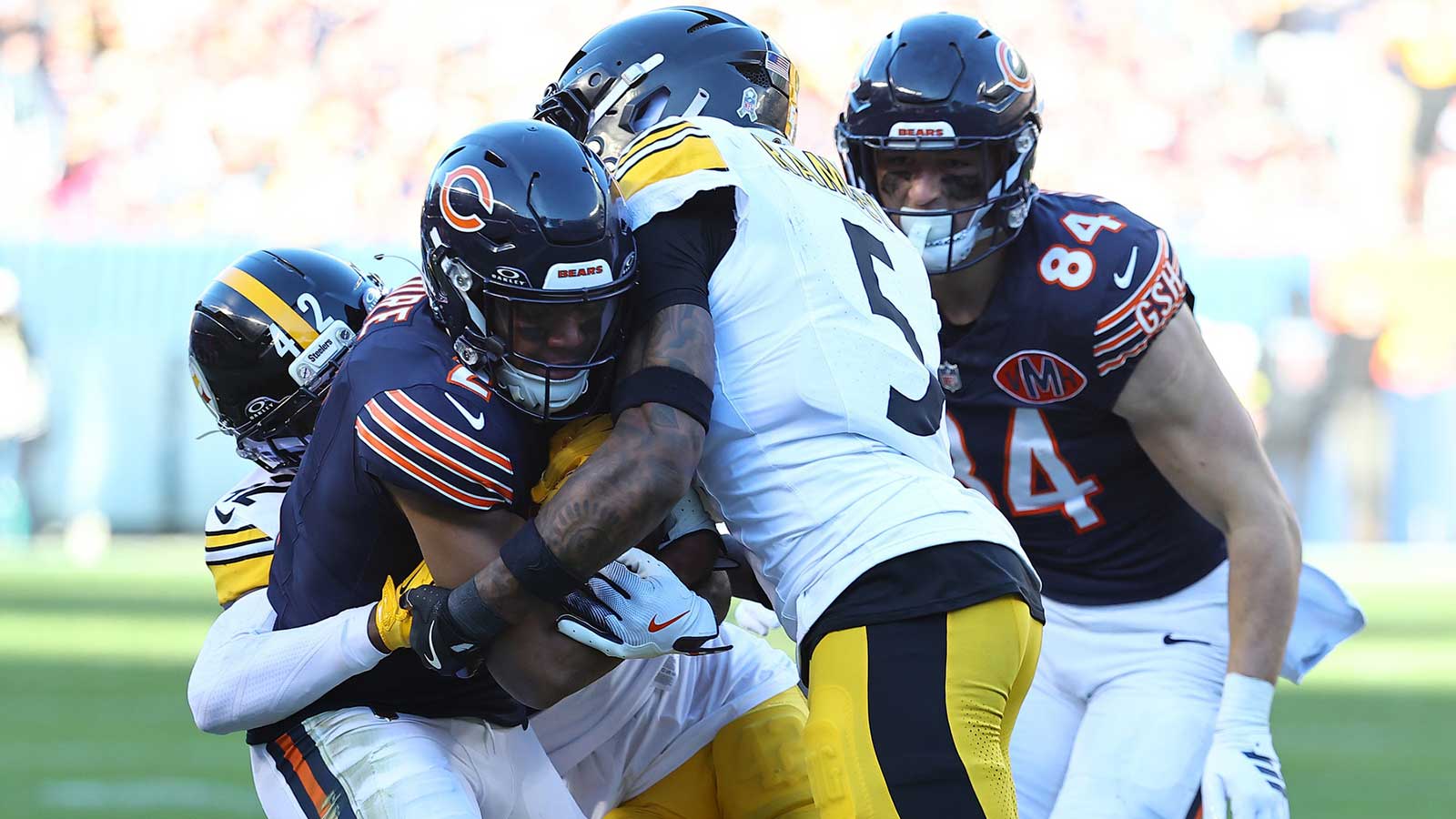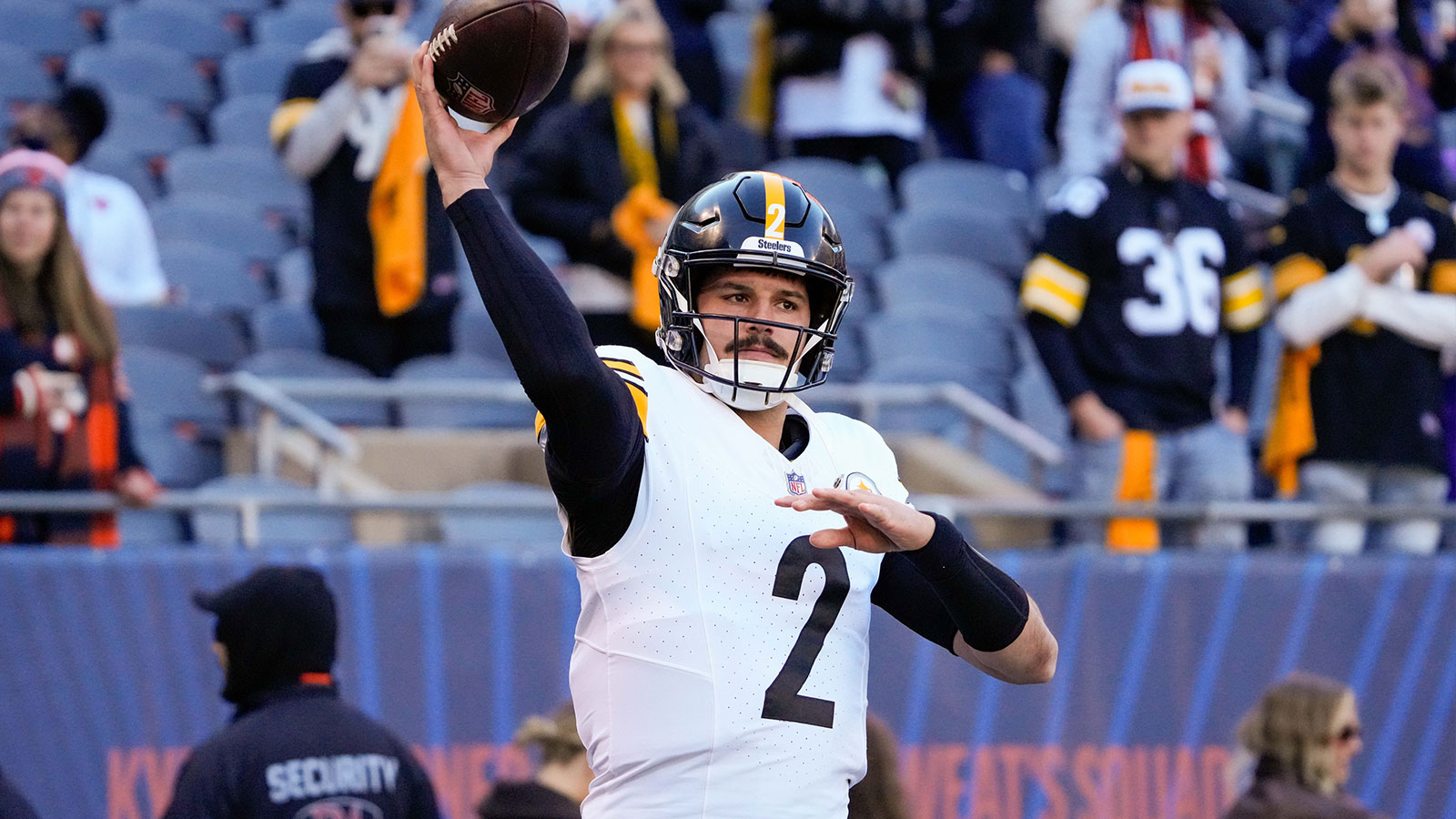The Pittsburgh Steelers entered Soldier Field on Sunday with a chance to solidify their grip on the AFC North division lead, but instead left Chicago with a devastating 31-28 loss to the surging Bears. While the scoreline was close enough to suggest a hard-fought battle, the reality is far more damning: this was an opportunity squandered by a team that made critical mistakes at precisely the wrong moments.
The Steelers had every chance to win this game, but their offensive execution in the second half, questionable play-calling adjustments, and turnover management ultimately cost them a division-defining victory against an NFC North leader. Make no mistake—Mason Rudolph and the Steelers offense played complementary football in the first half.
The ground game was operating efficiently with Kenneth Gainwell and Jaylen Warren creating rushing lanes, and the passing attack was clicking with well-designed short routes exploiting the Bears' depleted linebacker corps. Arthur Smith's offensive scheme was perfectly calibrated to attack Chicago's vulnerabilities, particularly along the perimeter. Pittsburgh moved the football well enough to build a 21-14 lead entering the fourth quarter, but what happened next revealed the core issue plaguing this team: an inability to sustain execution when it matters most.
Second-Half Collapse and Playcalling Regression
The Steelers' second-half performance was nothing short of catastrophic. In the third quarter alone, Pittsburgh ran just 11 offensive plays, produced two punts, and recorded a turnover on downs—hardly the formula for closing out a road victory against a rival. The offense that looked so sharp early evaporated once the Bears made halftime adjustments, and more troublingly, the Steelers lacked the creativity or will to counter those defensive schemes.
The deep passing game disappeared entirely, despite facing a Bears secondary compromised by injuries. Instead of attacking Chicago's weaknesses in the intermediate and vertical areas, Rudolph and the offense became stagnant and predictable, allowing the Bears to methodically crawl back into the game.
The playcalling regressed from the first half's imaginative approach to something far more pedestrian. Arthur Smith abandoned the misdirection and lateral-heavy concepts that had worked so effectively earlier, surrendering the numerical advantages Pittsburgh had created. What makes this collapse particularly frustrating is that the Bears' defense was severely weakened, giving the Steelers ample opportunity to impose their will.
Instead, Pittsburgh failed to capitalize, managing only 21 points against a defense that ranks among the league's worst. The inability to score touchdowns in the latter stages of the game proved to be the difference—especially after the Bears' Kyle Monangai powered in a 2-yard rushing touchdown to give Chicago a 31-21 lead early in the fourth quarter.
Turnover Management and the Final Drive Failure
While Rudolph deserves credit for compiling respectable statistics (24-of-31 for 171 yards), his two critical turnovers directly led to Chicago touchdowns. The Steelers' defense, which is supposed to thrive on takeaway opportunities, instead found itself chasing points after Rudolph's mistakes.
Another INT for the Chicago Bears. 🤯
Nahshon Wright picks off the Pittsburgh Steelers Mason Rudolph to give the Bears their 16th INT of the year. pic.twitter.com/NxzaYp0JmI— Tyler S (@Tyler_SS11) November 23, 2025
When the Steelers mounted their late rally with a 3-yard Freiermuth touchdown reception with 6:27 remaining, they had one final chance to engineer a game-winning or game-tying drive. That opportunity evaporated when Jaquan Brisker tipped Rudolph's fourth-and-6 pass attempt toward the end of the game, sealing Chicago's 31-28 victory.
The Steelers had the ball in the final minute with a legitimate chance to tie or win, but poor time management and ineffective playcalling in the previous drive—where they gained just two yards on each of their final two plays—left them in a desperate fourth-down situation with no timeouts remaining. Pittsburgh lacked the precision and poise required to execute in crunch time, ultimately blaming themselves for a loss they should have won.
The Steelers' record in Chicago now stands at a dismal 1-13, and this latest defeat proves that Pittsburgh's ongoing struggles in the division aren't about bad luck—they're about execution failures when the stakes are highest. Until this team solves its second-half consistency and turnover management issues, losses like Sunday's will continue to define their season.



















